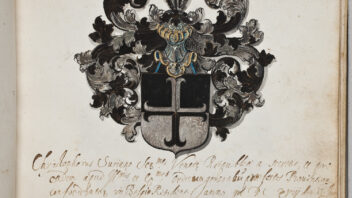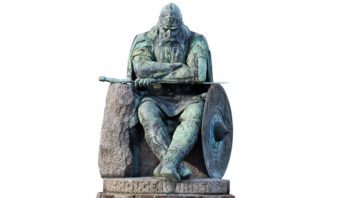Anne Frank House and KNAW win court case
In its ruling on 1 February, the court in Amsterdam stated that the online edition of Anne Frank Manuscripts may remain online. The ruling confirms the importance of freedom of science and free access to archives and collections throughout the heritage sector.
The court in Amsterdam ruled in summary proceedings instituted by the Anne Frank Fonds in Basel, Switzerland, against the Anne Frank House in Amsterdam and the Royal Netherlands Academy of Arts and Sciences (KNAW). According to the Anne Frank Fonds in Basel, the Anne Frank House and the Huygens Institute for the History of the Netherlands (an institute under the aegis of the KNAW) have violated the Fund’s copyrights in the Netherlands with the online publication of the scholarly edition of the manuscripts of Anne Frank in September 2021. In summary proceedings the Fonds demanded that the online scholarly edition be taken off the air. However, the court in Amsterdam stated that the Anne Frank House and KNAW had not infringed the copyrights of the Anne Frank Fonds in the Netherlands. The online edition of the Anne Frank Manuscripts therefore remains online.
Far from proportional
The Huygens Institute for the History of the Netherlands and the Anne Frank House have conducted over ten years of editing and historical research into the works of Anne Frank. The results of this research are published online in Belgium, and are only accessible from those countries (around 60) where the copyrights on all Anne Frank’s works have expired (the so-called public domain countries (PD countries)). According to the court, the Anne Frank House and KNAW have taken all necessary measures, including geoblocking, to prevent publication of the online edition in the Netherlands. The court in Amsterdam added: “The Fonds seems … to lose sight of the fact that granting the claims in the manner instituted in these summary proceedings would mean that all Internet users in all PD countries would be denied the possibility of lawfully obtaining access to the results of the scientific research. That is far from proportional. The Anne Frank House and the KNAW are pleased that the results of this research will remain freely accessible in so many countries.
Importance of freedom of science
The court ruling confirms the importance of the freedom of science. It is not only a boost for the online scientific edition, but for the entire heritage sector. Access to cultural heritage is of great importance to a society that wants to be aware of its history. Like all museums and archives in the Netherlands, the Anne Frank House sees it as its task to share its knowledge and collections with the public and scholars as widely as possible. Naturally, copyrights must be respected in this regard, but what is in the public domain should also remain publicly accessible. In this case the Anne Frank Fonds tried to keep Anne Frank’s work out of the public domain because of research that the Fonds itself had initiated later. The court did not follow suit: the Anne Frank Fonds’s own research is fine, but it should not frustrate other research. The importance of this ruling therefore transcends the online scholarly edition and confirms the importance of freedom of science and free access to archives and collections in the entire heritage sector.
Association for Research and Access to Historical Texts
The online scholarly edition of the manuscripts of Anne Frank was published in Belgium by the Vereniging voor Onderzoek en Ontsluiting Historische Teksten (Association for Research and Access to Historical Texts or VOOHT). This association aims to publish the results of scientific research in a public domain country: in Belgium, unlike in the Netherlands, all copyrights on the manuscripts of Anne Frank have expired. The VOOHT is a non-profit organisation.
Anne Frank Diaries World Heritage
The Anne Frank House and the KNAW consider it important to share their knowledge about Anne Frank with as many people as possible. Anne Frank’s writings are part of UNESCO’s Memory of the World Register, the World Heritage List for Documentary Heritage. After ten years of research, for the first time all the original manuscripts, with which Anne Frank hoped to become a famous writer, are shown online in their entirety and made accessible within a historical framework. The online scholarly edition of Anne Frank’s manuscripts has no commercial purpose and is freely accessible in all countries where copyright law permits.




